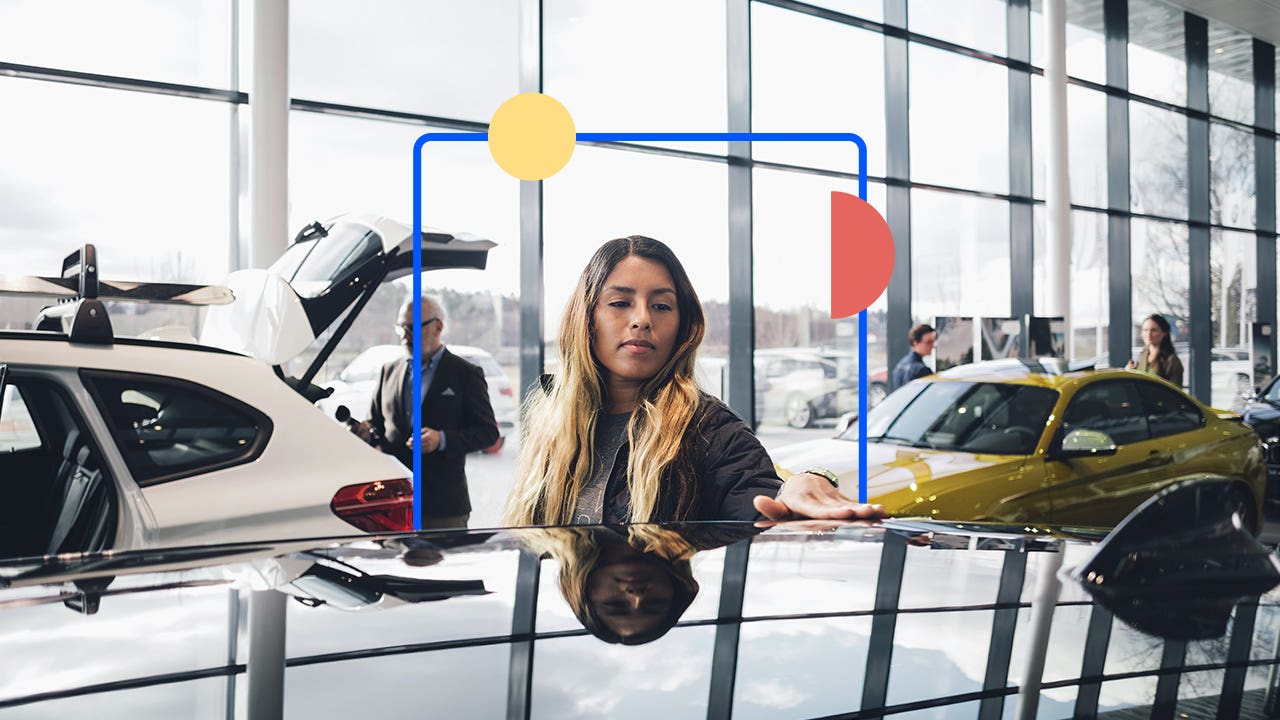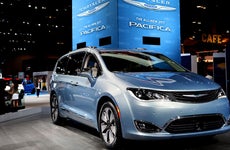How to choose a car you’ll love

The Bankrate promise
At Bankrate we strive to help you make smarter financial decisions. While we adhere to strict , this post may contain references to products from our partners. Here's an explanation for .
With thousands of car options available, there’s no best car for everyone, but there is a best one for you. How to choose a car ultimately comes down to your needs and your budget. Because there are so many models, know your budget, understand your buying options and research before you set foot on a car lot.
How to find the best car for you
A car is a significant investment. To ensure that you leave the dealership satisfied with your choice, ask yourself these questions first.
1. What’s your budget?
Determine how much money you’re willing to spend — both every month and overall.
Consider the true cost of owning the car, including the expected maintenance costs, fuel cost and insurance in addition to the monthly payment. A site like Edmunds can help you estimate how much each of these items will cost over a five-year period.
You can also use an auto loan calculator to see how different rates and repayment terms will affect your monthly payment and the total interest you’ll pay.’
2. Who’s driving?
The primary drivers of the car will decide which types of models you search for. If you’re a parent buying a car that a teenager will use, a sports car or luxury sedan probably isn’t the best choice. If you have a large family or will be sharing carpooling duties to and from school or soccer practice, you’ll need a vehicle with more seats and storage.
3. What’s the primary use?
Gas mileage and comfort should be major considerations if your car will mainly be used for commuting to and from work. Go to the dealership and sit in the car before you buy it. Take the time to adjust the seat and the climate control system to see if it’s the right fit. If you live in a cold region, test-driving on a cold day is a good way to see how quickly the windows defrost or the vehicle warms up.
Think about where you will be driving, what you will be taking with you and how long your typical drive will be. For long road trips or drives where you are expecting rough terrain, research models that can handle wear and tear. Likewise, a smaller vehicle might be better if most of your drives are on narrow city streets.
4. How much horsepower do you need?
For most drivers, a four-cylinder car is both reliable and fuel efficient. You will also spend less on maintenance and auto insurance costs. But if you love performance driving or have to accelerate rapidly onto crowded freeways, a four-cylinder car may disappoint you.
5. Do you need to tow or haul frequently?
Need a vehicle capable of towing a boat or RV? Many small cars simply don’t have the horsepower, transmission and chassis to handle the demands. Even some small SUVs aren’t up to the task, so check the vehicle’s towing capacity and payload capacity. You may want to consider a pickup truck designed for towing.
If you plan to purchase a larger vehicle for hauling equipment, check if it will fit in your garage. This is a step many drivers forget, but some SUVs, trucks and vans are either too wide or too tall for many garages. Make sure to measure before you buy.
6. Is fuel economy important to you?
Before signing off on a new car, consider how much you are willing to pay at the gas pump. Economy cars and hatchbacks usually get the best mileage, especially if they are electric or hybrid models. A more luxury vehicle will require premium gas, which tends to cost more than regular or midgrade fuel.
Check the fuel economy ahead of time. It may be worth it to spend a bit more upfront and avoid excess trips to the gas station. But you should ensure the extra money is worth it. If you will be paying thousands of dollars more for a hybrid but don’t stand to save that much in gas, it’s likely not worth the added expense if saving money is your only goal.
7. How long do you plan to use it?
Some vehicles depreciate more quickly than others. Look at car guides and check Kelley Blue Book or Edmunds to see what holds its value. This is especially important if you go through cars quickly: You’ll get a much better deal on a trade-in with a car that doesn’t lose much value in its first five years.
Some cars simply last longer, too. Subarus, Toyotas, Fords and Hondas are all known for their longevity, so they’re good starting points if you’re planning to keep your car for 100,000 miles or more.
8. Do you want to lease or buy?
Leasing and buying a car carry different financial burdens. Leasing is a good option if you want the newest vehicle available without paying as much each month, but you won’t recoup the amount you spend by trading in your car at the end of the lease. Additionally, you’ll have to keep a close eye on the condition and cleanliness of your vehicle, and you may have to contend with mileage caps.
Buying your vehicle places you fully in control, and you won’t have to worry about any mileage restrictions. The downside is that you typically need to keep the car for longer than you would with a lease in order to make the investment worth it. Monthly payments will likely be higher, too.
9. How was the test drive?
Find out as much as you can during the test drive of a vehicle. How does it handle on highways and city streets? Are you comfortable in the cabin? Does the driver’s seat adjust to your liking? How are road noise levels and sight lines? Are technology features (for instance, Bluetooth capabilities) intuitive and easy to use?
Consumer Reports recommends creating a checklist of priorities to use when test-driving. It may also be worthwhile to bring a friend or family member who can provide a second opinion on the experience. After test-driving, take the time and space you need to make a thoughtful decision.
The bottom line
The key to driving out of the dealership satisfied with your new vehicle is preparation. Decide what’s important to you before you pick a car. Style may be more important than size, fuel economy may be more important than seating. Each factor has its pros and cons, so do your research to find the car that will suit your needs for years to come.
Related Articles



